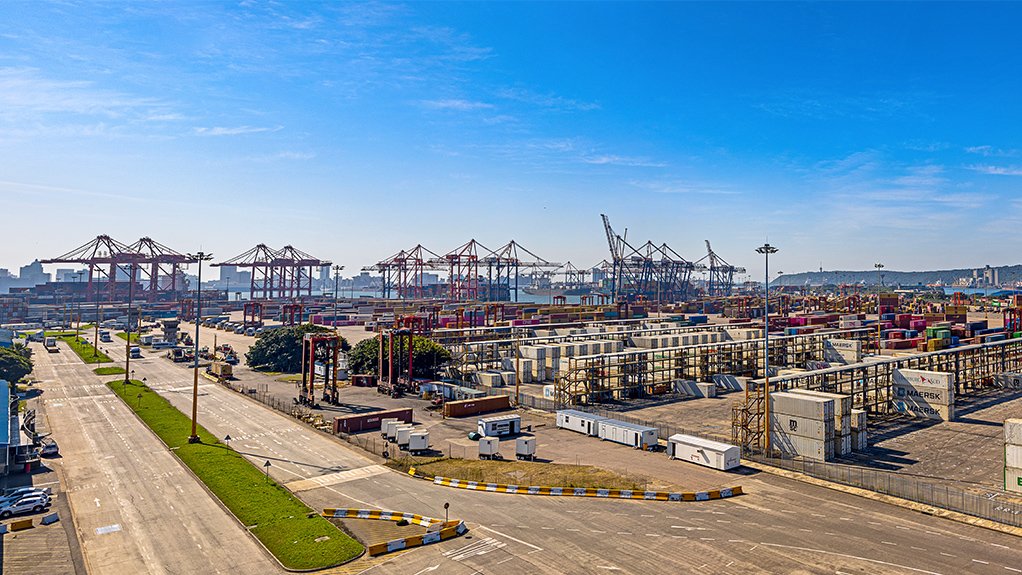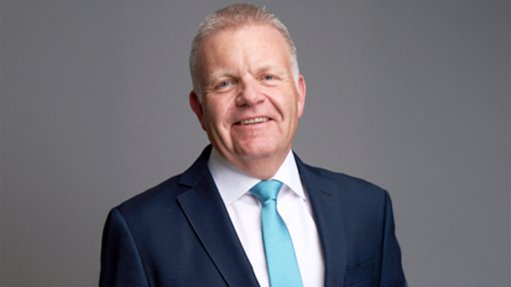Business stakeholders find ‘election-oriented’ SoNA wanting
Business stakeholders agree that President Cyril Ramphosa was right to emphasise economic reforms in his State of the Nation Address (SoNA) on February 8, as these are critical to turning around the country’s dire economic performance and unemployment.
Business Leadership South Africa (BLSA), for one, appreciated the President acknowledging the private sector’s role in supporting the National Electricity Crisis Committee and the National Logistics Crisis Committee; however, the organisation said it wanted clear indications of how blockages would be overcome to improve confidence that reform momentum would be maintained.
Among the blockages was resistance from within Ramaphosa’s own government that currently frustrated progress, the organisation argued.
Additionally, BLSA CEO Busi Mavuso pointed out that reforms such as the concessioning of ports and rail infrastructure had not worked smoothly, and the business sector needed clarity on how things would change to overcome this obstacle.
BLSA also hoped that Ramaphosa would follow through on new financing mechanisms for infrastructure and enable more private investment in transmission infrastructure, in particular, to accommodate more renewable energy.
On a positive note, BLSA said there were no populist promises made on the social relief distress grant that would have come at the cost of government’s fiscal discipline. “There are obvious political pressures to make unsustainable commitments to spending, but the President stopped short of major new promises. That is an implicit endorsement of National Treasury’s fiscal discipline,” Mavuso states.
However, a clear exception to fiscal constraint was the National Health Insurance (NHI) Bill, which Ramaposa recommitted to signing. BLSA maintained that the NHI was unimplementable as it stood with no feasible funding plan.
Although Ramaphosa blamed a lot of the economy’s current difficulties on State capture, Mavuso said that, in his five years of office, he could have done more to hold those responsible to account – including those that were still in government and continued to fuel corruption in the country.
The National Employers’ Association of South Africa (Neasa) shared that sentiment, stating that the ruling party did not have the ability to understand South Africa’s deeply entrenched failures, nor the necessary ability to bring about improvement.
Neasa CEO Gerhard Papenfus says SoNA was supposed to be an opportunity for a Statesman to take a nation into his confidence and present the true state of that nation; however, the President rather used this opportunity to campaign for the upcoming election.
The Bureau for Economic Research (BER), meanwhile, said Ramaphosa was always going to be speaking to the voters, especially given the poor polling by the African National Congress in data released over the past week. The research agency adds that the important funding details and implementation plans were largely left to the Budget and respective Ministers.
The BER did find it encouraging that Ramaphosa seems committed to continue involving the private sector in the country’s reforms. It also lauds the fact that the NHI will be implemented incrementally and “not as one big shock to the healthcare system”.
Further, trade union Solidarity agrees with Neasa that Ramaphosa failed to mention the flaws at almost every level of public service, with the aim of misleading voters before the election.
According to Solidarity Research Institute head Connie Mulder, Ramaphosa talked about his term of office as one in which the economy was rebuilt, recycled and renewed, “while the opposite is happening right before our eyes”.
Solidarity summarised the SoNA as having been a “shameless repetition of the same failed plans, in the hope that it will garner votes”.
Similarly, North West University Business School''s Professor Raymond Parsons said there was clearly still much “unfinished business” on the national agenda, including a more coherent overall economic plan for much higher job-rich inclusive growth.
He explained that a large part of the economic resilience South Africa had nevertheless exhibited so far owed a great deal to the positive engagement and commitment of the private sector in expediting public delivery.
To make up for a lacking SoNA, Parsons said the upcoming Budget, to be presented by Finance Minister Enoch Godongwana on February 21, needed to embody tangible outcomes that build certainty against a background in which fiscal targets have consistently been missed.
“South Africa is already at the outer limits of what can reasonably be done to curtail its debt burden and stabilise public finances. This is where the big challenge now lies in the aftermath of SoNA and for South Africa’s future risk premium,” Parsons adds.
For the Agricultural Business Chamber of South Africa, the SoNA was devoid of any new ideas or major announcements to stimulate economic growth; however, it could also be an affirmation that the State was not deviating from commitments made in the previous year’s SoNA, but rather allowing critical processes of reform to unfold.
The organisation added that business had invested a lot of time, capital and goodwill into these collaborative efforts towards economic reform. It therefore hoped that government would not shelve longer-term pragmatic processes in favour of a populist approach.
Another oversight on Ramaphosa’s part, the Southern African Tourism Services Association said, was addressing the vital sector of tourism, including how the visa system could work more effectively.
The association believes the tourism sector is being hamstrung by various external factors, but that Ramaphosa neglected to provide meaningful details on or concrete timelines for government’s efforts in tackling, for example, energy supply, improved road conditions and unemployment.
Financial services provider Nedbank also echoed other stakeholders’ concerns that the SoNA was formulated with the election in mind, with the speech largely reviewing the work done by Ramaphosa’s administration over the past five years.
The bank’s view is that progress on various crises has been slow and patchy, with little evidence of significant and sustained gains in addressing crime and corruption, transport bottlenecks and other bulk infrastructure constraints.
On the topic of crime, Cape Town Mayor Geordin Hill-Lewis expressed concern that Rampahosa had nothing to say about the crisis of gang-, gun- and drug-related crime, especially the problem that gangs have infiltrated the South African Police Service.
He pointed out that city policing operations confiscated 447 illegal firearms in the last two financial years, including police guns possessed by criminals. Hill-Lewis believes the President has the power to confer additional peace powers for municipal officers, but neglects to do so.
Hill-Lewis said it was also disappointing not to hear anything in the SoNA about the Rail Devolution Strategy, which Ramaphosa last year promised would be out before the end of 2023.
Meanwhile, Consulting Engineers of South Africa (Cesa) said South Africa required leaders who prioritised the welfare of the nation above personal gain and which embodied a spirit of true service to people.
Cesa ultimately calls for a paradigm shift in governance that prioritises action over promises, unity over division and service over self-interest.
The South African Institution of Civil Engineering agreed, adding that detailed timelines, clear roles and accountability were essential for rebuilding South Africa’s infrastructure and economy. It added that procurement processes, in particular, must uphold integrity and be shielded from political interference.
Cesa concludes that, only through honest dialogue and unified action, can the gravity of the situation in South Africa’s economy be confronted.
Article Enquiry
Email Article
Save Article
Feedback
To advertise email advertising@creamermedia.co.za or click here
Press Office
Announcements
What's On
Subscribe to improve your user experience...
Option 1 (equivalent of R125 a month):
Receive a weekly copy of Creamer Media's Engineering News & Mining Weekly magazine
(print copy for those in South Africa and e-magazine for those outside of South Africa)
Receive daily email newsletters
Access to full search results
Access archive of magazine back copies
Access to Projects in Progress
Access to ONE Research Report of your choice in PDF format
Option 2 (equivalent of R375 a month):
All benefits from Option 1
PLUS
Access to Creamer Media's Research Channel Africa for ALL Research Reports, in PDF format, on various industrial and mining sectors
including Electricity; Water; Energy Transition; Hydrogen; Roads, Rail and Ports; Coal; Gold; Platinum; Battery Metals; etc.
Already a subscriber?
Forgotten your password?
Receive weekly copy of Creamer Media's Engineering News & Mining Weekly magazine (print copy for those in South Africa and e-magazine for those outside of South Africa)
➕
Recieve daily email newsletters
➕
Access to full search results
➕
Access archive of magazine back copies
➕
Access to Projects in Progress
➕
Access to ONE Research Report of your choice in PDF format
RESEARCH CHANNEL AFRICA
R4500 (equivalent of R375 a month)
SUBSCRIBEAll benefits from Option 1
➕
Access to Creamer Media's Research Channel Africa for ALL Research Reports on various industrial and mining sectors, in PDF format, including on:
Electricity
➕
Water
➕
Energy Transition
➕
Hydrogen
➕
Roads, Rail and Ports
➕
Coal
➕
Gold
➕
Platinum
➕
Battery Metals
➕
etc.
Receive all benefits from Option 1 or Option 2 delivered to numerous people at your company
➕
Multiple User names and Passwords for simultaneous log-ins
➕
Intranet integration access to all in your organisation



















